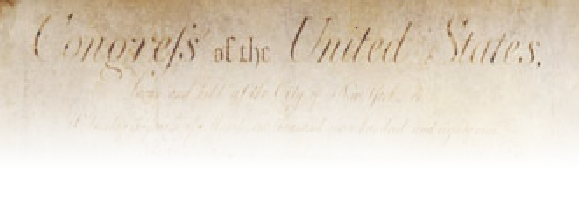
Copyright © 2012 Ilona Goin. www.thegoldenthreadoflife.com. The Golden Thread of Life is a publication of Golden Thread Publishing, a function of Opus 9 Media LLC.








Congress shall make no law respecting an establishment of religion, or
prohibiting the free exercise thereof; or abridging the freedom of speech, or of the press; or the right of the people peaceably to assemble, and to petition the Government for a redress of grievances.
The First Amendment spells out our most fundamental natural rights, and makes it clear that these are granted by God, not the government. It thus lists the specific freedoms the government must take care not to interfere with, and which the Founders knew were both essential and most at risk: freedom of conscience and worship, speech and personal expression, association, and the right to keep the government on track serving the people.
The simple, direct, and unequivocal words reinforce the over-arching idea of the Constitution’s preamble. Through this enlightened document, which was designed both as a blueprint and road map for a free nation, “we the people” define exactly how to “secure the Blessings of Liberty to ourselves and our Posterity.”
Freedom is too important to be compared to a game, so we don’t mean to trivialize the matter, but it has to be said: Founders 1, Tyrants 0.
Clement Attlee was a lawyer, World War I captain, socialist, Labour Party leader, and Deputy Prime Minister from 1942-1945 under Winston Churchill in his war-time coalition government. Attlee was to follow Churchill as PM from 1945 until 1951.
Despite his accomplishments, Attlee had a rather laconic, unimpressive personality more reminiscent of a bureaucrat or manager than a national leader in times of great change. While Churchill was on a bold mission to rescue the free world from the greedy claws of the German iron eagle, Attlee was more interested in civic life in Great Britain. As a member of the Labour Party, Attlee stood for policies that were in opposition to Churchill’s conservative ideals.
To Churchill, it must have appeared a little like the divide between the hunter husband battling off rival tribes and hunting fierce wild boar while his wife tended the hearth and waited for something to cook on the fire. Churchill was certainly well aware that there would be no society for Attlee to attend to, engineer, or micro-manage unless he himself succeeded in his hunt.
Churchill’s prey was of course the dictators of the 1930’s who became the despots on a quest for world domination in the 1940’s. As one of the few with the foresight to see the evil trajectory long before the intelligentsia or masses caught on, he became liberty’s staunchest defender, the lion who would not back down even in the face of a pack of hyenas—his own party members and countrymen, no less. In true Churchillian style he “never, never, never” gave in, and the world was saved an ignoble fate.
Thus, when someone referred to Attlee as modest, we can understand why the courageous and colorful Winston Churchill, with his familiar dry wit and sense of irony, said: “Well, he has much to be modest about.”
• About 1 in 10 people worldwide is left-handed
• 70% of New Yorkers define themselves as Christian
• 12% of New Yorkers define themselves as Jewish, more people than live in the city of Jerusalem
• The history of the Easter bunny traces back to Eostre, the Anglo-Saxon goddess of fertility


Posters, prints, cards, and bookmarks
Photographs and designs to lift the spirit:
